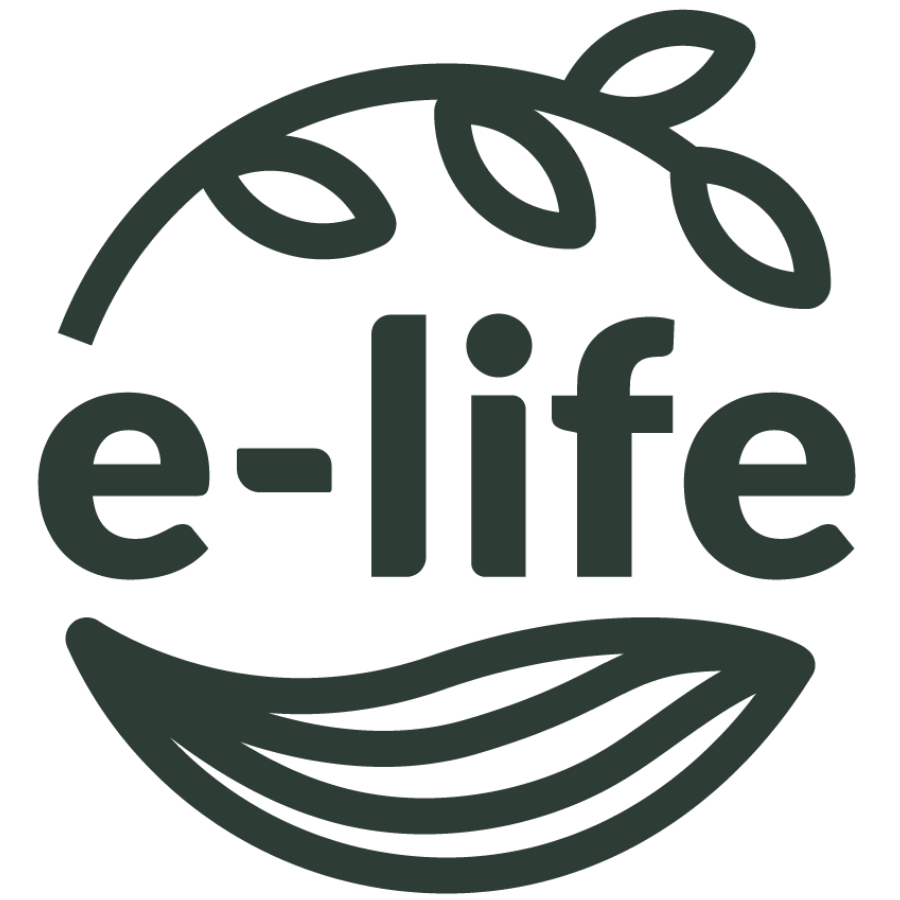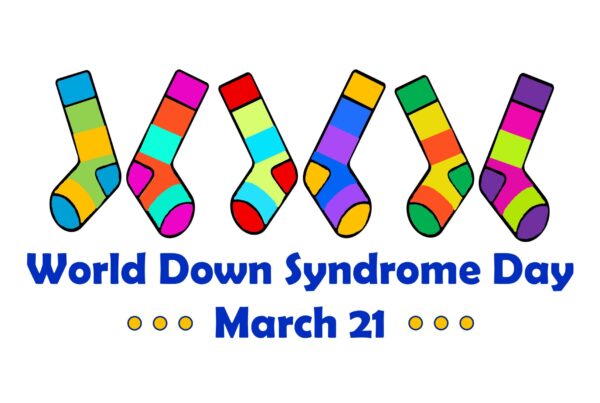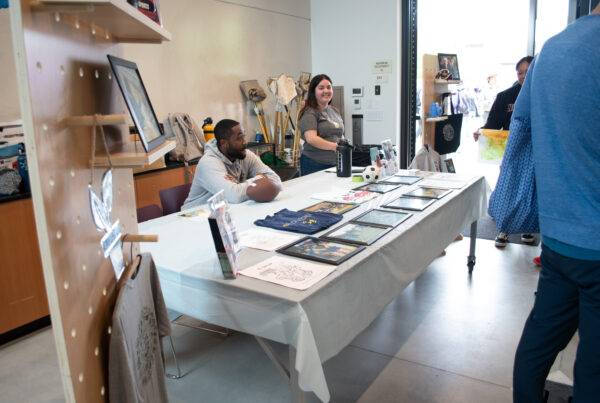In each of our programs, E-Sports is dedicated to promoting and practicing one simple mantra:
Inclusion is a lifestyle.
This basic premise is the beating heart of everything we do. We believe that inclusion should go beyond the classroom, and even beyond sports programs. Our hope is that our programs make inclusion a way of life, reaching the whole person in every life stage.
With that in mind, we are excited to announce that E-Sports is expanding into a larger umbrella organization called “E-Life.” E-Life will bring our inclusive mantra into new areas such as farming, music, art, and gaming while maintaining and continuing to develop the inclusive sports programs we have already established. These new initiatives will enable us to spread the mindset of inclusion to more individuals of all different ages and abilities.
To understand why we need E-Life, let’s take a look at what inclusion is and why it’s so important.
Inclusion as a way of life
Social inclusion has been defined as “equal opportunities and resources between people with and without disabilities.” It is providing the resources necessary to allow people with disabilities the same opportunities as those without to reach their fullest potential.
The education system has a somewhat recent history with the concept of inclusion. In 1975, IDEA (The Individuals with Disabilities Education Act) was implemented in schools across America. IDEA is a law that “makes available a free appropriate public education to eligible children with disabilities throughout the nation and ensures special education and related services to those children.”
This law was important for students with disabilities, as it allowed them access to an education when they were otherwise discarded or neglected. But it was a far cry from what we understand of inclusion today. Though this act helped provide special education for these students, they were still segregated from their peers.
Since the 1970s, inclusion has slowly inserted itself into the “education conversation.” Schools are understanding more now the need to integrate students with special needs into their classrooms, but they often still struggle to meet the needs of each student.
Researchers are beginning to understand the need for social inclusion along with academic inclusion. The article, “The Social Face of Inclusive Education: Are Students with Learning Disabilities Really Included in the Classroom?” discusses the negative and positive social results of including children with special needs in a mainstream classroom, analyzing conflicting data that has been collected over the years.
One study found that students with disabilities “reported more feelings of loneliness than their classroom peers who did not have disabilities” and were more rejected by peers and neglected by teachers (Pavri & Luftig, 2000). However, another study found that inclusive classrooms had a positive impact on students with disabilities, with an increase in self-efficacy and a decrease in social alienation from their peers (Vaughn, et. al 1996).
Though there is not definitive data as to why these studies have conflicting results, we believe that the success of inclusive classrooms in some studies and failure in others reinforces the notion that inclusion must be so much more than a classroom setting. It must be a mindset and a lifestyle. People with special needs don’t just need to be included in the classroom, but in every aspect of their lives, and the world suffers when it does not adapt to them.
E-Sports: inclusion beyond the classroom
This idea that inclusion should expand beyond the classroom is what led to the creation of E-Sports.
When Russ Ewell looked for an inclusive sports program for his two boys with special needs where they could make friends with both typical peers and those with special needs, his options were very few, if any. So, with his friend Greg Bodzioch, he decided to start his own inclusive sports program.
E-Soccer began as simply a grassroots, neighborhood soccer program. The “E” stood for “Exceptional” because we believe that all children, typical and with special needs, are exceptional.
Over time, this one small E-Soccer program grew and expanded rapidly to multiple soccer programs around the Bay Area.
As the program grew, it became clear that different kids with different challenges responded best to different types of drills and exercises. At the same time, Brendan and Kim Murray decided they wanted to use their martial arts background to provide a similar inclusive experience. They launched the next E-Sports program – E-Karate, in Redwood City in 2002.
Soccer and karate are such different types of sports and disciplines that it became rapidly apparent that kids with very diverse challenges and abilities could now more easily find the “right fit,” all within the same type of inclusive environment.
Since then, E-Sports has expanded to many different sports now including basketball, fitness, and dance programs in addition to those initial soccer and karate programs. Each new program has been infused with the same unifying mindset that inclusion is beneficial to both kids with special needs and their neurotypical peers, and should be a lifestyle that is implemented beyond the classroom.
E-Life: Reaching the whole person
Over the last twenty years of continuing to expand and develop our programs, we are constantly learning and adapting to the needs of the kids who participate in them. One thing we recognize is that our programs are currently geared towards children up to late teens. While the need to have something for kids is still prominent and we will continue to meet it, we are excited to expand to meet the needs of adults with special needs as well.
One study found that “two-thirds of young people with autism had neither a job nor educational plans during the first two years after high school. For over a third of young adults with autism, this continued into their early 20s…” (NPR, 2015). The following graph is the percentage of young adults with autism who never worked or continued education after graduating high school.

The study also found that “1 in 4 young people with autism was completely isolated — meaning he or she had not seen or spoken with friends in a year.”
This takes a toll on the mental health and wellbeing of adults with disabilities. No one, regardless of special needs, should have to feel that isolated.
Inclusion should not be limited to the classroom, or even to sports. Inclusion should instead be about reaching the whole person – from childhood to adulthood, from the classroom to the field or court, to the workplace, to everyday life. It should be so infused into our minds and culture that it doesn’t even need to be addressed because it is expected.
Because inclusion is a lifestyle.
This is why we want to expand E-Sports to the larger umbrella of E-Life. It should go without question that we will continue to develop and build our sports programs, but we want to add many other aspects of life to this inclusion initiative.
In recent years, some of our E-Sports veterans have already put this into effect. Efforts like E-Surf and E-Art have been reaching the adventurous and creative side of participants, respectively. Game Social is a program meant to address the isolation of teenagers and adults with special needs, providing a sensory-friendly environment for anyone to come to play games and make friends. Additionally, E-Music, E-Cooking, and E-Farming have been proposed for the future!
We are excited about E-Life because we believe it furthers the mission we are seeking to accomplish: inclusion as a lifestyle, reaching the whole person no matter their life stage. We hope that everyone who participates in our various programs has instilled in them the passion to pursue inclusion as a lifelong feat. To us, that is what it truly means to live an “exceptional life.”





